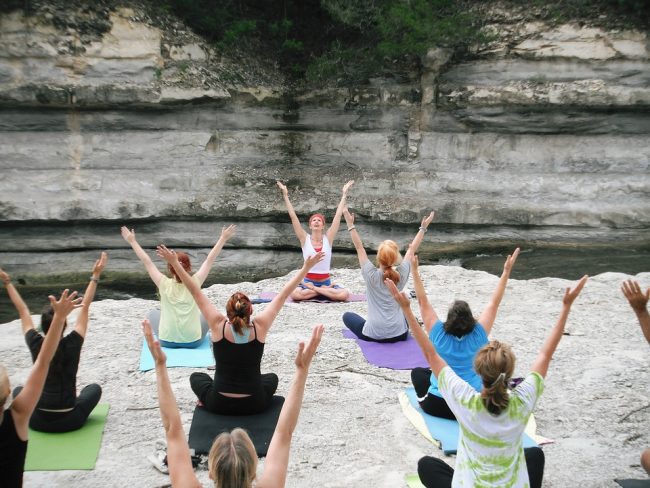Do you feel lonely when you are alone, or do you love the solitude of being by yourself?
Being alone isn’t necessarily the same thing as being lonely – solitude can be a balm to our fractured nerves but being alone can be a fear that is more potent than the bogeyman.
One of the epidemic problems of our time is loneliness. Especially in ultra-urban places like London, where one might not even know one’s neighbours, the support system that a community can give us is absent. However, you can also feel lonely in a group of people – feeling a glass wall between you and the friendships around you.
Loneliness is a state of mind and can be as rampant in the super-busy mother who has 3 children, a husband and a dog as in the party-animal hipster who meets scores of ‘friends’ for drinks every week.
Do you ever feel this way – unhappy in the midst of life happening all around you?
Reasons for loneliness can be manifold. You could be a naturally shy person, finding it difficult to meet new people and make friends. You could be recovering from some tragedy in your life or have moved to a new place. Stress, depression and illness might be physiological reasons that bring about loneliness.
There are ways to deal with it, though. Loneliness doesn’t have to take over. All it is takes to overcome it is some gentle thoughts and the acknowledgement that you might need to stretch out of your comfort zone.
The risk and risks of loneliness increase as we grow older. According to a report by Age UK and the Campaign to End Loneliness, a million elderly people in the UK don’t speak to or even see anyone in a day. This can be as bad for them as smoking 15 cigarettes daily. Even in countries like Japan, where caring for elders used to be part of the societal structure, elderly women are getting themselves arrested in order to go to jail. Jail means care and companionship, both of which are no longer part of their lives.
Loneliness though, especially in today’s day and age, is not restricted to the elderly. Young and middle aged people can feel just as lonely – however, this is a good time to break the patterns and take some initiatives to ensure that as you grow older you have the means to surround yourself with people who care for you.
What are some of the things you can do to battle loneliness, especially if you have moved somewhere you don’t have friends or family?
- Join groups and meet new people
 Joining people who share common interests with you is a wonderful way to make new friends, especially in a new place. You could even meet a romantic interest in this way, if you are single. You can browse community notice boards, or the internet, to find groups and places that give you an immediate ice-breaker. Interested in dance? Go to a Tango milonga, a meeting place where you can dance with others like you, regardless of whether you are a beginner or a pro.
Joining people who share common interests with you is a wonderful way to make new friends, especially in a new place. You could even meet a romantic interest in this way, if you are single. You can browse community notice boards, or the internet, to find groups and places that give you an immediate ice-breaker. Interested in dance? Go to a Tango milonga, a meeting place where you can dance with others like you, regardless of whether you are a beginner or a pro.
- List out your dreams and desires
We go shopping for groceries with a list, but don’t even think about doing this for ourselves! Unless you can identify (and sometimes quantify) what you want, how are going to go about finding it, or adding it to the metaphorical shopping cart of your life? Make a list – but backwards. Start with what you want to be or have in the twilight years of your life. Then keeping the end goal in mind, break your goals up into decades, 5 years, yearly, monthly, or even weekly and daily, depending on how much clarity and guidance you need. Read my blog on Your Best Year Yet, to get more ideas and information on planning your life the way you want.
- Take care of yourself
Sometimes, feelings of loneliness and frustration can be symptoms of depression, or even peri-menopause (the time leading up to menopause). Make sure that you are taking care of your body and your mind. See a doctor or a healer, do some tests, take supplements and exercise. Feed your soul as well, by exploring yoga and meditation. Get connected with your body and be aware of how you are feeling and why. If you are disconnected on the inside, it is difficult to connect on the outside. Heal yourself alongside meeting others.
Baby steps along these lines will start to build tools that will keep you in good stead for the rest of your life. Be gentle and patient with yourself. A lifetime of habits will change slowly. The important thing is not to give up, no matter how uncomfortable it can get or how much you crash and burn.
If you think you have to be perfect, and beat yourself up every time you feel you aren’t, you will scare yourself away from making any change. Just know that we are all human, we are all trying to be better people and make our lives closer to our ideal. You deserve to be loved and befriended as much as anyone else. And remember the old adage: sometimes the best way to make a friend is to be one.
Stay tuned for more on this subject in parts 2 and 3 of upcoming blog posts.
Elisa x
